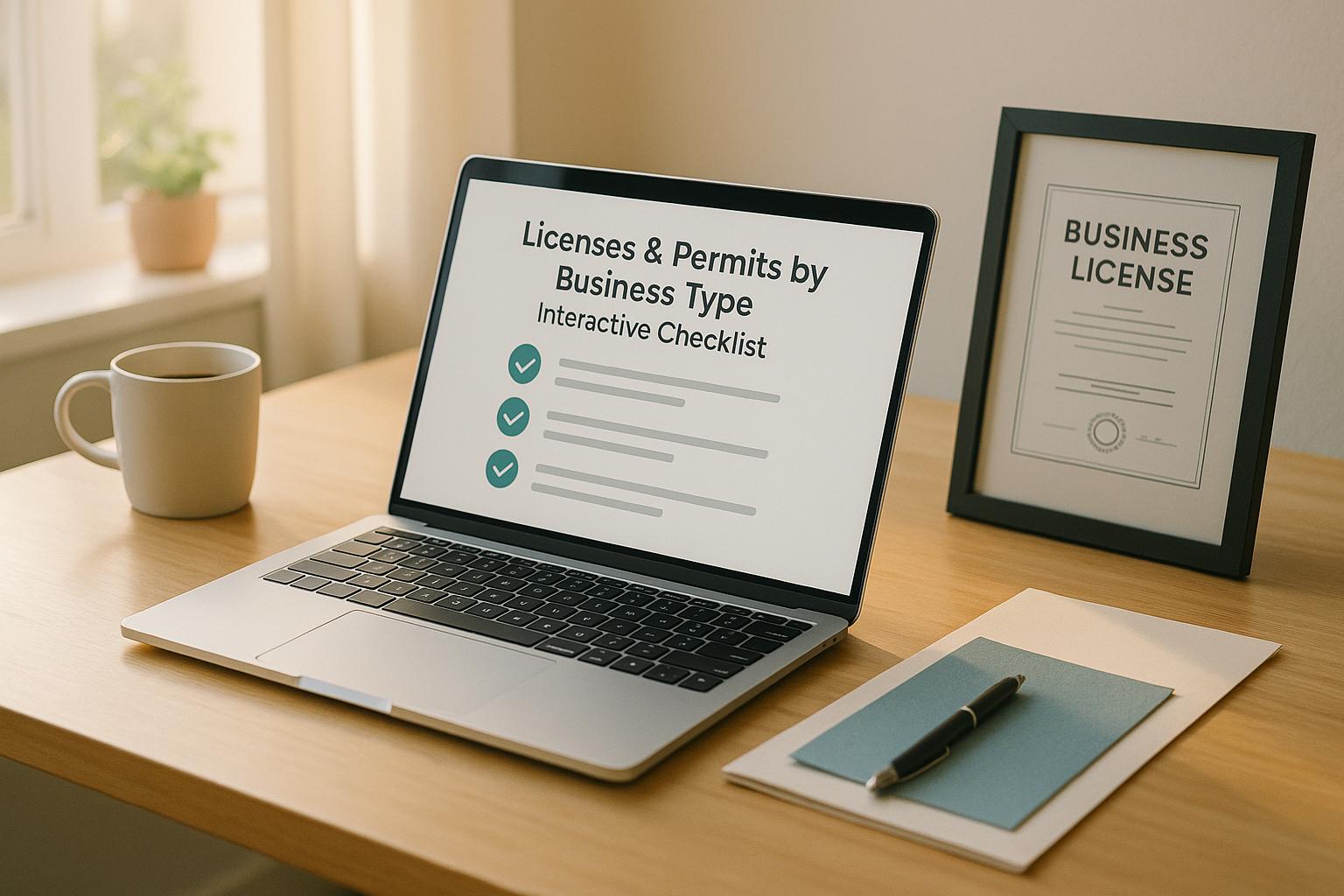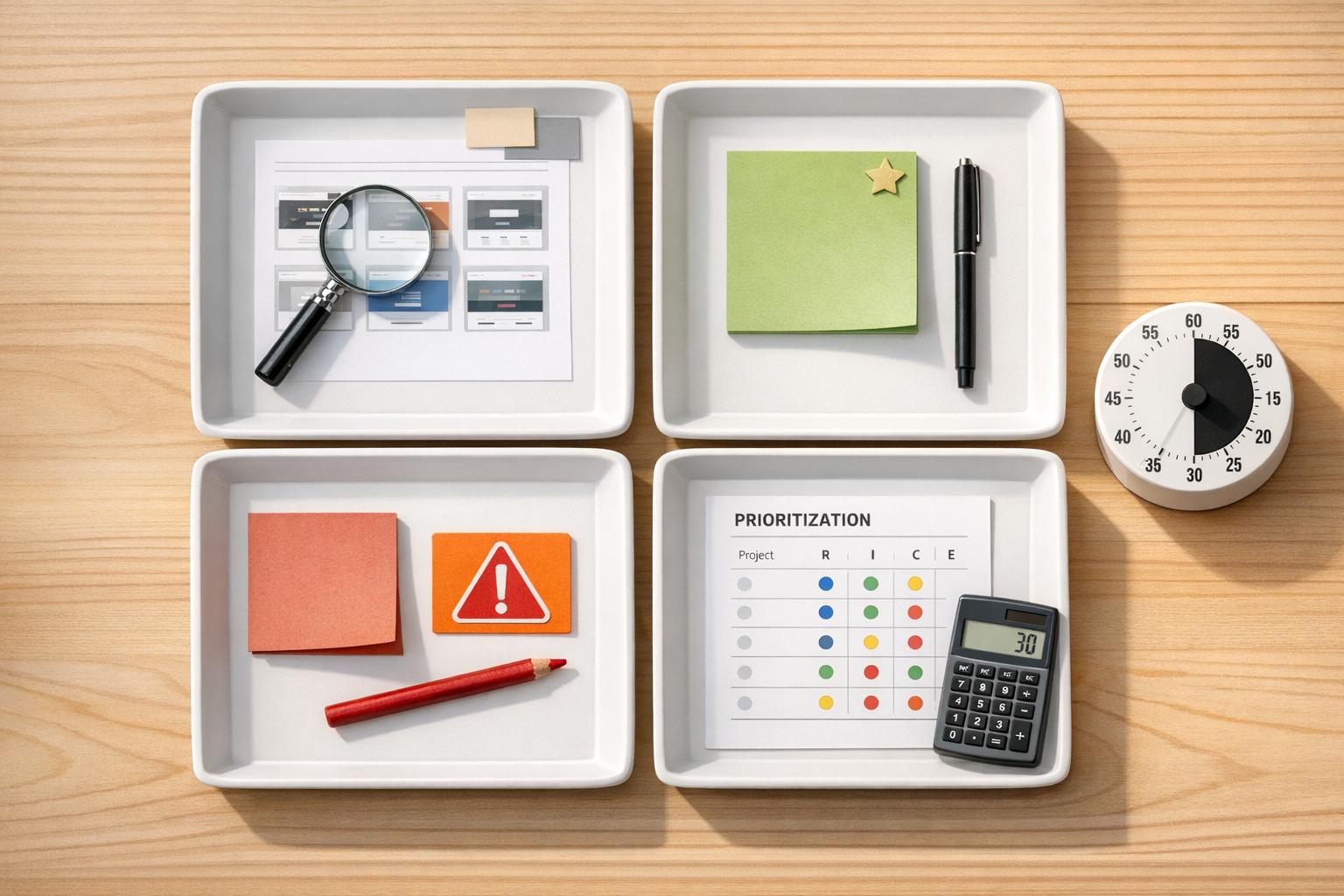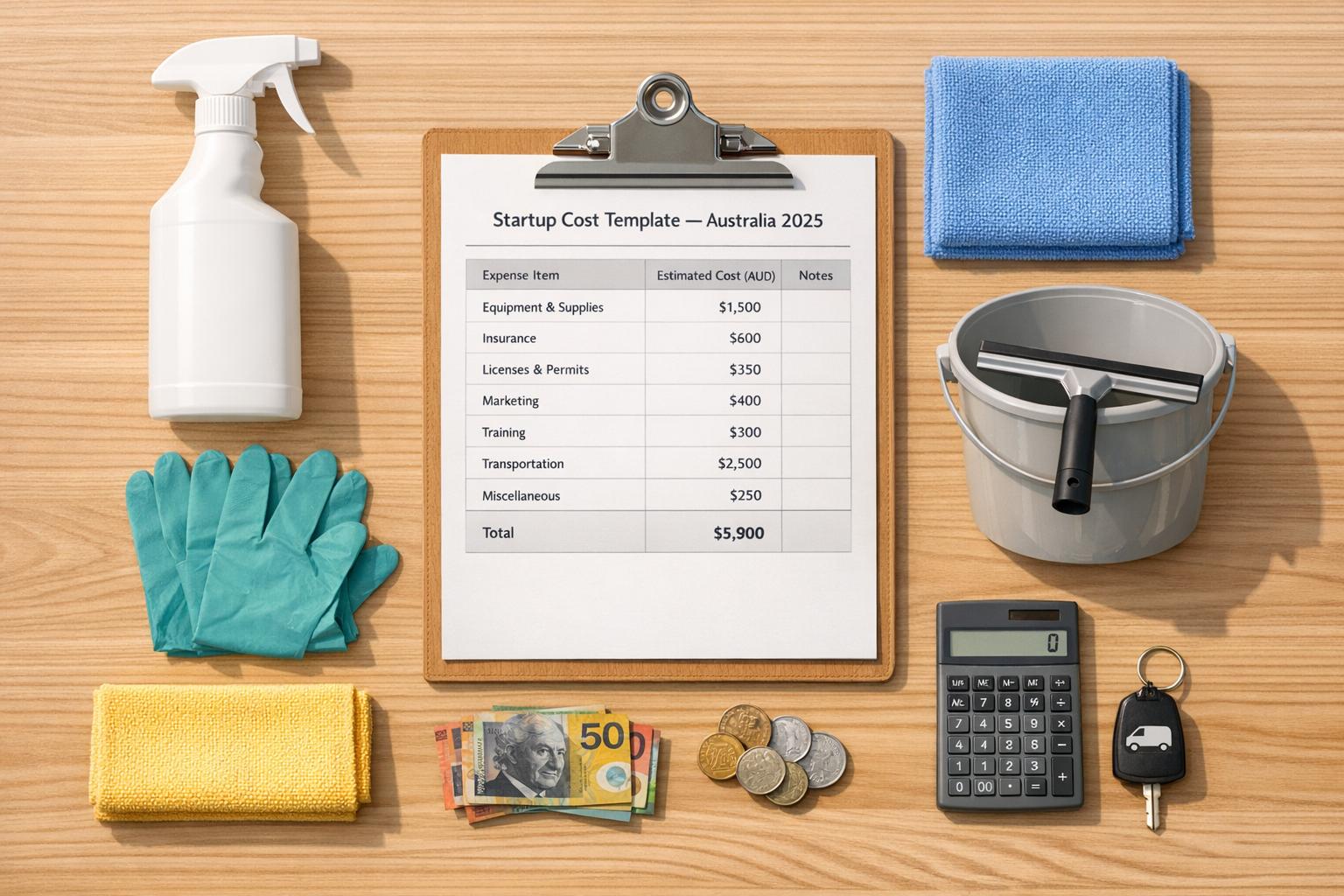
Starting a business? You’ll need the right licenses and permits to operate legally and avoid penalties. Requirements vary by industry, location, and the type of services you offer. Here's a quick rundown of what you need to know:
- General Licenses: Most businesses require a basic operating license, often called a business tax certificate.
- Tax IDs: Obtain a Federal EIN and, if applicable, state tax IDs for hiring employees or selling taxable goods.
- Zoning and Permits: Ensure your business location complies with local zoning laws, building codes, and signage rules.
- Industry-Specific Licenses: Food businesses, construction companies, and professional services often need additional permits tailored to their operations.
- Interactive Tools: Use tools like checklists or AI-powered platforms to identify and track your compliance needs.
Staying compliant isn’t just about following the law - it’s about building a solid foundation for your business. Use resources like the CalGOLD website or AI tools like IdeaFloat to simplify the process and stay organized as you grow.
How Do I Determine Which Business Licenses I Need? - BusinessGuide360.com
Common Licenses and Permits for Most Businesses
To legally operate a business, there are certain licenses and permits you’ll likely need, no matter your industry. These requirements are the foundation for running a compliant business.
General Business Licenses
A general business license is often a must-have for businesses to legally operate within a city or county. While California doesn’t issue a statewide business license, many local governments require one. This is commonly referred to as a Business Tax Certificate or Business Operating License.
To get started, you’ll need to register your business name, outline your activities, and pay the required fees, which vary depending on location. For example, in San Diego, a business tax certificate starts at $38, whereas San Francisco charges between $25 and $50 for registration.
If your business operates in multiple cities, you may need separate licenses for each. For instance, a consulting firm with offices in both Los Angeles and San Francisco would need to obtain licenses from both cities.
Home-based businesses often face additional requirements. Many jurisdictions mandate a home occupation permit alongside the general business license to ensure compliance with zoning laws and to preserve the residential character of neighborhoods.
For California businesses, the CalGOLD website (www.calgold.ca.gov) is a helpful resource to find detailed information on permits based on your business type and location. Once you’ve secured your license, you’ll also need to obtain tax IDs and meet employer-related obligations.
Tax IDs and Employer Requirements
A key step in legitimizing your business is obtaining a Federal Employer Identification Number (EIN) from the IRS. You’ll need an EIN if you plan to hire employees, have multiple business owners, or operate as a corporation. The application process is free and straightforward through the IRS website, and you’ll receive your EIN immediately upon completing the online form.
In addition to the EIN, many states require a state tax ID if you’re hiring employees or selling taxable goods. This ID helps track obligations like unemployment insurance and workers’ compensation.
If you sell tangible goods subject to sales tax, you’ll also need a seller’s permit. In California, this involves registering with the California Department of Tax and Fee Administration (CDTFA). Keep in mind that a seller’s permit is separate from your general business license and specifically handles sales tax collection.
Once you’ve secured your tax identification, it’s time to address local permits tied to your business location.
Zoning, Building, and Sign Permits
If your business has a physical location, additional permits are often necessary to ensure compliance with local zoning and safety regulations.
- Zoning Permits: These verify that your business location is appropriate for its intended use. Local zoning ordinances typically divide areas into commercial, residential, and industrial zones, each with specific rules. For example, a retail store cannot operate in a residential area without prior zoning approval. Before applying for other permits, check with your local planning division. In Santa Clara, for instance, businesses must secure Zoning Clearance from the Planning Division before applying for a business license.
- Building Permits: If you’re making structural changes to your business space - like installing equipment, modifying walls, or adding electrical outlets - you’ll need a building permit. These permits ensure that all changes meet local building codes and safety standards.
- Sign Permits: Business signage often requires approval to comply with local rules on size, placement, lighting, and materials. These regulations are designed to maintain community aesthetics and safety. Before installing or updating signage, you’ll need to submit plans and obtain a sign permit.
The application process for these permits usually involves submitting detailed plans, paying fees, and scheduling inspections. Processing times can vary, so it’s wise to include permit approvals in your business planning timeline. Keep in mind that some permits require ongoing compliance, which may include regular inspections or renewal fees.
Licenses and Permits by Industry Type
Each industry comes with its own set of rules and regulations, so it’s crucial to determine the specific licenses and permits your business needs to operate legally.
Food and Beverage Businesses
If you're in the food and beverage industry, health and safety regulations are a top priority. To comply, you'll need to work with your local health department to secure the necessary permits and certifications.
Professional Service Businesses
Businesses offering professional services - like healthcare, legal, accounting, or skilled trades - often require specialized licenses and certifications. For instance, healthcare providers and legal professionals must adhere to state-specific guidelines, which typically involve periodic license renewals and continuing education. In Michigan, while a general business license isn’t required, the Department of Licensing and Regulatory Affairs (LARA) oversees over 200 professions. Licensing fees in the state range from free to nearly $4,750, with renewal cycles spanning one to three years.
Highly Regulated Industries
Industries with heavy regulations often face overlapping requirements at federal, state, and local levels. To navigate these complexities, business owners in these sectors should consult specialized experts. Use the interactive checklist below to identify the permits and compliance steps tailored to your industry.
sbb-itb-08dd11e
How to Use the Interactive Checklist for Compliance
An interactive checklist is a great way to simplify the licensing process, but knowing how to tailor and manage it is key to staying compliant. This tool provides a step-by-step guide to securing all necessary licenses and permits.
Customizing the Checklist for Your Business
Interactive checklists, often referred to as "Business Wizards", are designed to generate a personalized list of licenses and permits based on your specific needs. The process is simple but requires accurate details about your business to ensure no critical requirements are overlooked.
You'll be asked questions about your business type, location, and activities. This is because licensing requirements can vary significantly depending on your industry and where you operate. For example, even the same license may have different criteria in different states or counties.
Your industry classification plays a big role in determining the licenses you need. Be as detailed as possible about your operations. A bakery that sells wholesale will likely face different requirements than one that serves customers on-site.
Additionally, you'll need to provide information about your business structure, the number of employees, and the services you offer. This helps capture all relevant federal, state, and local requirements.
Managing Applications and Renewal Dates
Staying on top of deadlines is crucial. Create a master calendar to track application and renewal dates. Setting up automated reminders well in advance of deadlines ensures you have enough time to gather required documents, complete any continuing education, or schedule inspections. Missing a renewal could lead to fines or even disrupt your operations.
Keep records of all communications with licensing agencies, including confirmation numbers and receipts. These can be helpful if any questions or issues arise during the application process.
From a financial perspective, consider how licensing fees and renewal cycles fit into your budget. These costs can vary widely, so accounting for them in your cash flow projections can prevent surprises. Staying organized also helps you identify when it's time to consult an expert.
When to Get Professional Help
While the checklist is a great starting point, there are situations where professional advice is invaluable. If you're new to running a business, dealing with complicated multi-level regulations, or need guidance on structuring your business or handling taxes, seeking expert help can save you from costly mistakes.
The interactive checklist is a powerful tool, but when things get complex or the stakes are high, don’t hesitate to bring in a professional. The cost of their advice is often far less than the penalties or setbacks caused by non-compliance.
Using AI Tools to Simplify Compliance
Expanding on the interactive checklist approach, AI tools are reshaping how businesses handle licensing and compliance. By automating key aspects of the process, platforms like those from IdeaFloat make it easier for entrepreneurs to navigate the often-complex world of business permits and regulations.
AI-Powered License Identification
IdeaFloat uses artificial intelligence to analyze your business profile, pinpointing the licenses and permits you need. It cross-references your information with federal, state, and local regulations, reducing the chances of missing critical requirements while keeping your compliance data up-to-date.
Automated Compliance Checklists and Reminders
With IdeaFloat, you get a customized checklist tailored to your specific needs. It also includes automated reminders to help you stay on track with application deadlines, cutting down on delays and avoiding costly oversights.
Linking Licensing to Business Strategy
Beyond compliance, IdeaFloat connects licensing requirements to broader business validation. By addressing these regulatory factors early, you gain insights into how they might impact your business model and operational expenses. This forward-thinking approach helps you build a strong foundation for long-term success.
Conclusion: Stay Compliant While Growing Your Business
Having the right business licenses and permits is not just about following the rules - it’s a crucial step in building a thriving business. With the right tools, staying compliant can be far less overwhelming, even as your business grows and evolves.
Key Points to Keep in Mind
Compliance is a continuous process, not something you handle once and forget about. Your licensing needs will shift as your business changes - whether you’re moving locations, adding new services, or expanding into new markets. For instance, the 2024-2025 Texas Business Licenses & Permits Guide highlights how licensing requirements can vary widely depending on your business type.
Interactive tools can save you time and help reduce mistakes. Resources like the NYC Business "Step by Step" wizard provide tailored lists of the permits and licenses you need, and it takes just about 10 minutes to complete. Similarly, the Arizona Small Business Checklist is a great resource for businesses that are relocating or growing, making sure you don’t miss any new requirements along the way.
AI-powered platforms like IdeaFloat take it a step further by creating personalized compliance checklists tailored to your specific business profile, simplifying what could otherwise be a complex process.
What to Do Next
Now that you know the importance of staying compliant, here’s how you can move forward:
- Start by evaluating your current compliance status using an interactive checklist. Whether you’re launching a new venture or expanding an established one, make use of the guides and state-specific resources available through your local Business Permit Office.
- Use interactive tools to stay on top of your compliance needs as your business grows. Record your progress, track deadlines, and set renewal reminders to avoid missing critical updates.
- Take advantage of AI-powered platforms like IdeaFloat to streamline the entire process. These tools not only simplify compliance but also help validate your business and enhance its online presence.
FAQs
How do I find out which licenses and permits my business needs based on my industry and location?
To figure out the licenses and permits your business needs, start by looking at your industry and location. These requirements can differ significantly depending on your state, county, and city. The type of business you run and the agencies overseeing your activities will determine what permits are necessary.
For instance, if you're launching a business in California, you'll need to review the specific rules for the city and county where you plan to operate. State resources, like your Secretary of State's office or local business support programs, can guide you through the process. You can also use tools like industry-specific checklists or online permit assistance platforms to make things easier.
Taking the time to research local, state, and federal requirements will help you stay compliant and steer clear of legal troubles.
What happens if my business doesn’t have the required licenses and permits?
Operating your business without the proper licenses and permits can result in some hefty consequences. For starters, you could face financial penalties, which might come in the form of fixed fines or even a percentage of your revenue during the time you were non-compliant. In more severe cases, authorities could go as far as suspending or completely shutting down your operations.
Beyond the financial hit, non-compliance opens the door to legal troubles. This could mean lawsuits or increased liability, both of which can drain your resources and time. On top of that, your reputation could take a serious hit. Losing client trust or missing out on contracts because of compliance issues can be hard to recover from. Simply put, staying compliant isn’t just about following the rules - it’s about protecting your business and keeping things running smoothly.
How does IdeaFloat help businesses stay compliant with licenses and permits?
IdeaFloat leverages AI-driven tools to make managing and maintaining compliance with business licenses and permits easier. By analyzing your specific business type and location, it delivers personalized recommendations to help you pinpoint the exact licenses and permits required.
The platform also provides detailed, step-by-step guidance and timely reminders to keep you on track with renewals and any regulatory updates. This not only saves you time but also minimizes the chances of overlooking important compliance obligations - leaving you free to concentrate on expanding your business.
Related Blog Posts
Get the newest tips and tricks of starting your business!


